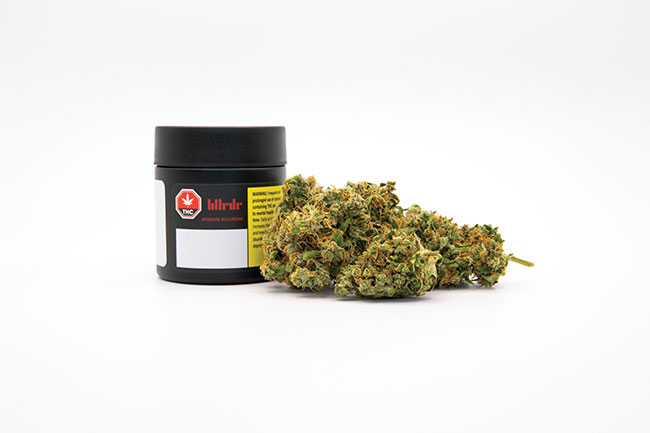
Features
Business
Legal
Regulations
How quality craft can combat Canada’s illicit market
June 14, 2021 By Max Zavet
 Brands that tell their story and connect to the consumer through shared values will also help in winning over the illicit market. Photo: BLLRDR.
Brands that tell their story and connect to the consumer through shared values will also help in winning over the illicit market. Photo: BLLRDR. A recent Statistics Canada report estimates that legal sales of recreational cannabis exceeded illicit sales for the very first time during the third quarter of 2020. What can this be attributed to?
As the CEO of BLLRDR, a Canadian brand specializing in the small-batch production of premium cannabis, I believe in the power of craft cannabis and its ability to improve the performance of the legal market. Right now, it’s very encouraging to see a number of smaller micro-cultivators in the marketplace developing fresh genetics and products that are superior to large-scale producers.
That said, these smaller producers continue to face difficulties in accessing the market due to provincial regulatory frameworks around distribution, combined with additional costs around packaging, taxes and logistics. In turn, this makes it difficult for those quality products to be sold directly to the consumer.
With the current situation in mind, here are three points to consider when discussing the role of craft cannabis in the future success of the Canadian legal market.
Quality matters
A major driving force behind Canada’s strong illicit market is the consumer demand for the best price. Craft offerings can impact purchasing decisions and support in converting illegal sales to legal by providing cannabis consumers with well-made and well-priced products that appeal to their preferences. We also know that cannabis users appreciate and value brands that offer transparency and tell a story, another advantage small producers have to major production facilities.
It should be mentioned that the term craft is not necessarily synonymous with high-quality cannabis. It can be used as a convenient term to mean that the cannabis was hand processed (trimming and packaging) and hung dried with more cannabis cover leaf. While those aspects are very important and generally lead to higher quality outcomes, it is only part of the process. Genetics, climate and other environmental conditions for growing, processing and curing/storage play a significant role.
While many factors go into the production-side of high-quality craft cannabis, I believe the best results come from a laser-focused, slow and steady process combined with the best cannabis genetics by the best growers available. Brands that tell their story and connect to the consumer through shared values will also help in winning over the illicit market consumer and improve the legal market.
A fresh approach
Business models like farm-gate that allow producers to sell their fresh, sustainable products directly to consumers from their facility are the way of the future. Farm-gate can address the current access gap by providing the grower or purveyor with a convenient direct-to-consumer platform.
This model also provides small producers with a unique opportunity to introduce the legal market to thousands of one-of-a-kind, high-demand genetics like Afghani Bullrider. Focusing on quality, not quantity, this retail framework allows for small producers to have their own retail store where they can then sell fresh, farm-to-table limited drops.
Another benefit of farm-gate is that it allows producers to introduce more varied offerings in different formats. An example of this is the next generation of fresh frozen hash concentrates that BLLRDR is currently working on. Once we are operational, we will be the first retail store in the country with in-house hash rosin production and will be able to deliver a fresh, superior, shelf-stable quality product at a more competitive price for the consumer at retail.
Retail returns
The impact of COVID-19 cannot be ignored. As retailers begin to welcome customers back in-store and more licensed shops open (especially in Ontario), consumers can explore their local dispensary and become more informed. This is necessary to introduce the new strains by micro cultivators that are available through regulated channels that deliver the best in flavour profile, terpenes and THC levels. Extending the retail experience and connecting to cannabis culture, music and fresh, exclusive cannabis products based on the best genetics will also connect and resonate with consumers and the experiences they desire.
The conversation must continue and there is still work to be done. While market-entry obstacles for small producers remain, the growing number of micro-cultivation licences in Canada is promising, as we work to create a thriving legal market.
Max Zavet is the CEO and co-founder of BLLRDR. Working in collaboration with Grammy-nominated producer Noah ‘40’ Shebib and master grower Jef Tek, the BLLRDR team’s mission is to share their love and passion for cannabis with the entire world.
Print this page